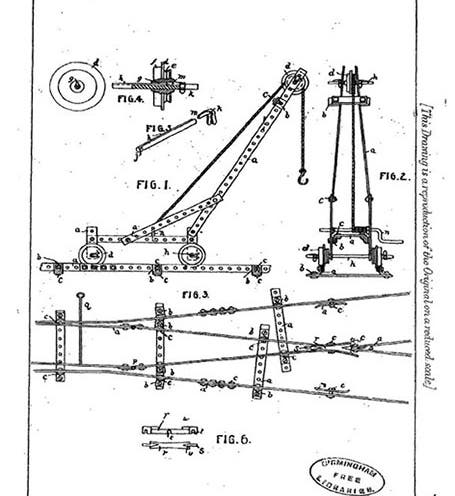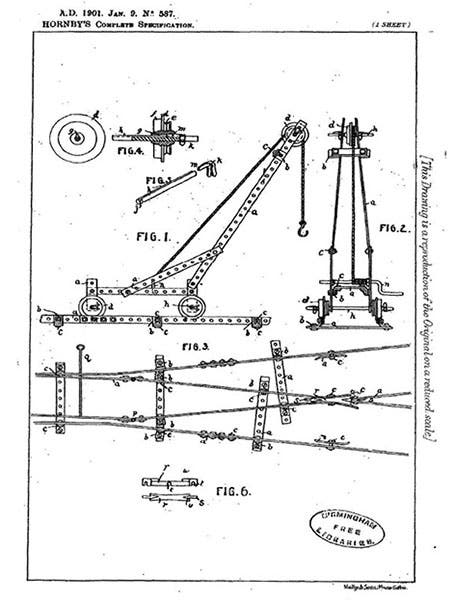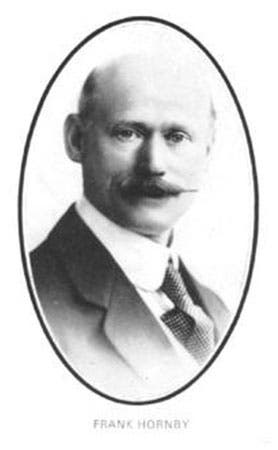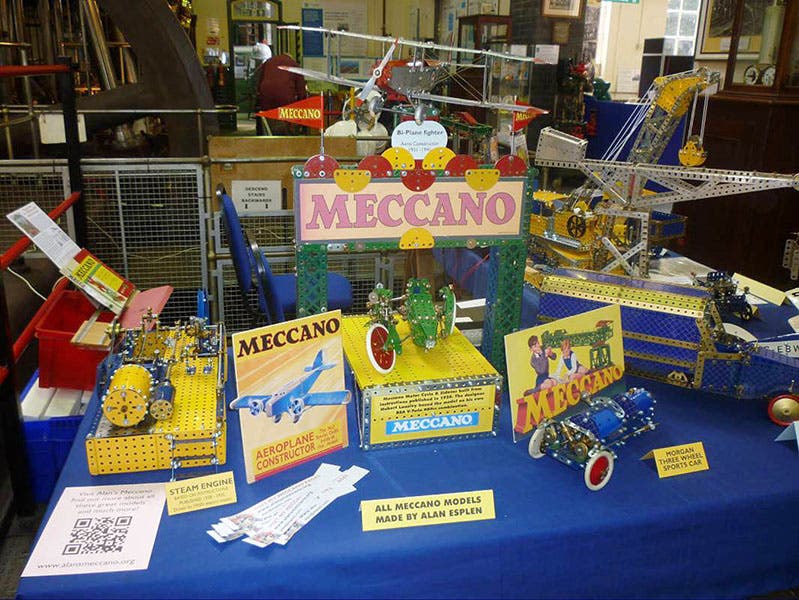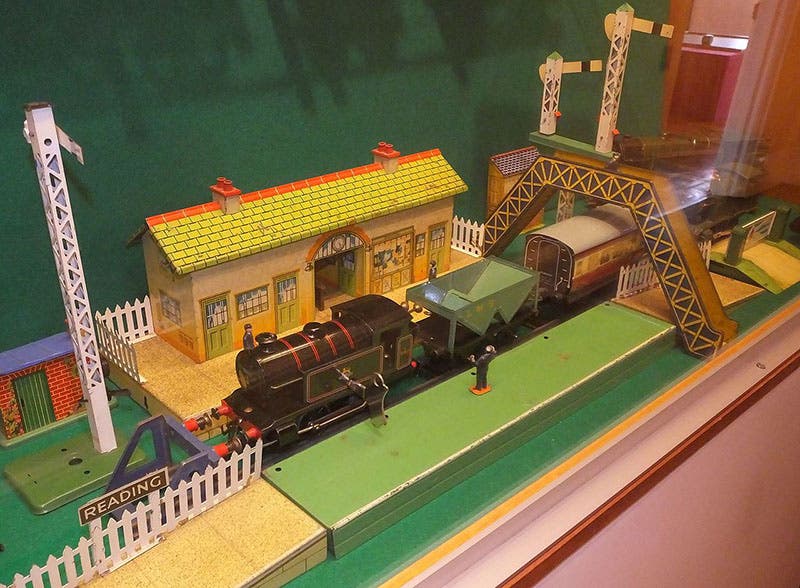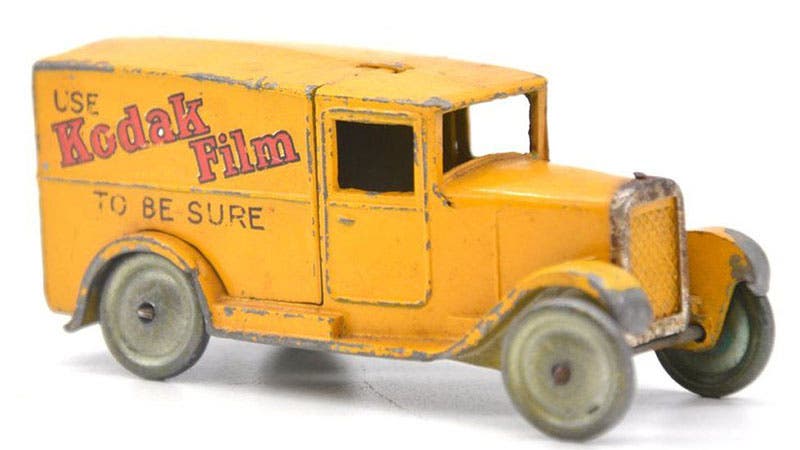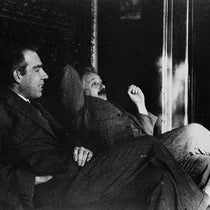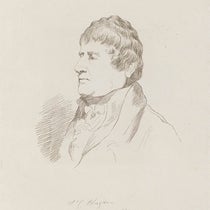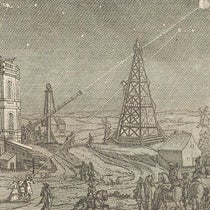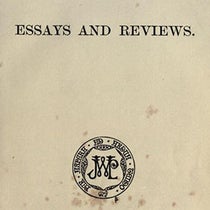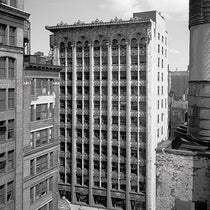Scientist of the Day - Frank Hornby
Frank Hornby, an English inventor and entrepreneur, was born May 15, 1863, in Liverpool, England. Hornby was that rarest of inventors, a fairly ordinary man, untrained in math or physics, and with no known mechanical skill as a child, who, beginning in his mid-thirties, was able to imagine, build, and market a toy that would captivate children (and their parents) everywhere, and then do it again, and then yet again, creating three separate mechanical toys that are now classics.
The first came around 1900, when was working as a bookkeeper, and he tried making toys out of sheet metal for his kids, such as cranes and bulldozers. He found that if he used small strips of metal with holes pre-drilled at regular intervals, coupled with pre-drilled metal plates, small sheet-metal-angles, axle rods, and wheels, he could build just about anything with the same basic pieces, using small bolts and nuts to hold everything together. With support from his boss, who provided a spare room for the manufature of parts, he patented his construction set and started turning out sets for sale. Business slowly grew, and in 1908, he formed a company and named it Meccano. Meccano construction sets became more and more popular, especially when clockwork motors were introduced to power constructs like Ferris wheels and merry-go-rounds, followed by small electric motors. Sets came in all sizes to fit any budget, and they remained in fashion for 50 years, long after Hornby passed away (in 1936). They were soon rivalled in the United States by Erector Sets, devised by A.C. Gilbert and obviously patterned after Meccano sets (I do not know how patents worked in 1912, but I cannot understand how Gilbert ever obtained a patent for his nearly identical construction system).
Hornby also had the wisdom to begin issuing in 1916 a periodical for Meccano fans, Meccano Magazine, thereby creating a community of builders and collectors, one that has only grown and flourished in the succeeding 107 years. There are Meccano clubs in nearly every city, especially in Great Britain, and Meccano conventions, fairs, and websites. Sets are very popular on eBay, with the pre-World-War-II models commanding the highest prices. Although I own some Erector sets from the 1930s, I do not have a single Meccano set from that era, which I very much regret, as I fear it is now too late to afford one.
I think that Meccano construction sets alone would have made Hornby wealthy, but in 1920, he introduced a line of toy trains, Hornby Trains, or Hornby Railways. These were made of tinplate, powered by wind-up motors, and ran on metal tracks that were intended to wind through towns populated by Meccano buildings and vehicles. They started out as O gauge (1:48 scale), and only after Hornby's death were the smaller and more popular OO-gauge models introduced. All Hornby Railway toys are now collectors' items.
Hornby’s final act of toy genius was to introduce a line of die-cast zinc cars and trucks in 1934, which were called Dinky Toys. Like Hornby Trains, they were made in the Liverpool Meccano factory, but were marketed as a separate brand. Dinky Toys included cars, delivery vans, signs, road workers, and all manner of bits that would be useful in a Meccano town with a Hornby Railway. The Dinky Toy cars and trucks created a huge market that would later be invaded by Matchbox and Mattel Hot-Wheels die-cast vehicles. But the Dinky Toys were the first, and still the most collectable.
There was a 2002 biography of Hornby, but it was published by a small press and we do not have a copy in the Library, so I don't know what there was in Hornby’s background that made him able to understand the toy market so well and target it so accurately. He may well have created the modern mechanical toy market, and what allowed him to do so, I know not. I will have to acquire that book, as well as an early Meccano set, a Hornby Train, and a Dinky Toy car or truck.
William B. Ashworth, Jr., Consultant for the History of Science, Linda Hall Library and Associate Professor emeritus, Department of History, University of Missouri-Kansas City. Comments or corrections are welcome; please direct to ashworthw@umkc.edu.

